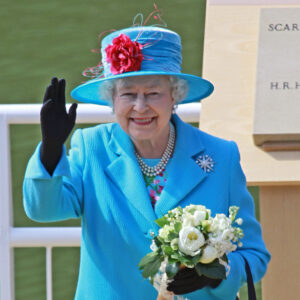Bad news from the Royal Family: Queen Elizabeth II has been advised by her doctors to rest and to cancel a trip to Northern Ireland and, sadly, to forego her nightly tipple, a martini.
The Queen is 95 years old and next year is her platinum jubilee – 70 years since she ascended the throne on Feb. 6, 1952. Hers is an awesomely long rule — the longest ever for a woman and right behind Louis XIV, whose reign of 72 years and 110 days is the longest in world history.
In Britain and around the world, there is a warmth of feeling and respect for Elizabeth that no other head of state or member of a royal family enjoys or is likely to acquire.
Of course, if you watch PBS, you will believe that every detail of the British Monarchy is of great interest and importance. It isn’t. There is reason to admire and revere the Queen as a great exemplar of an archaic office and as a superb public servant, but do we need to know all 1,000 years that lie behind the monarchy in Britain? They aren’t divine and most of today’s Royal Family, except for that doughty old lady, are dysfunctional.
But the public fascination with that whole tribe here and around the world goes on. Amazingly, there never seems to be any time when there isn’t something about the royals on PBS. Are we Americans all closet monarchists to the core? And British royalists at that.
The popular press tells us all about the transgressions of the younger royals and the BBC, and its fraternal American relation, PBS, tells us everything there is to be told about royal residences, carriages, jewels, historical oddities, clothes, and food. If you want to know about the crown the Queen wore for her coronation on June 2, 1953, I am sure PBS has bought a program on it.
There are just two things about the Queen which we haven’t been told: How many matching hat and coat outfits does she own and how has she endured for so long the essential banality of royal public life? How many hundreds of thousands of wobbly women has she watched doing deep curtseys; how many heads of state has she chatted to about the weather; how many teachers has she congratulated on the nobility of their calling; how many tribal dancers has she watched and applauded?
That is dedication and she is still at it. Public servants worldwide take note.
The amazing thing is that while the privacy of other royals has been stripped bare – sometimes, as in the case of the late Princess Diana, with their encouragement — the Queen has pulled off her entire reign by being public and obvious and yet aloof and private.
That is the stuff of royal leadership: Let everyone know you are on the job but remain remote, above, and mysterious.
The Queen is masterful in her skill at being seen enough but heard hardly at all. It is a lesson that politicians with their endless appearances on television would be wise to learn: Less is more, except when it comes to the work, then more is more. For Elizabeth, during her extraordinarily long working life, more has always been more.
She is not a great intellectual. She doesn’t seem to have been a wholly successful mother and her private enjoyment, horses, is an elitist pursuit which is neither shared by many of her subjects at home nor her admirers around the world. I have heard her criticized by people close to her for these failings, but never by her globe-circling public.
The Royal Family is the greatest show on earth with all of its pomp, its ceremony, and its foibles. But it is an enduring and endearing woman, who has kept the monarchy burnished through the years.
“I have in sincerity pledged myself to your service as so many of you are pledged to mine. Throughout all my life and with all my heart I shall strive to be worthy of your trust.”
That is what she said in a broadcast speech after her coronation at Westminster Abbey in 1953. And she has kept her word to the letter. God save the Queen. Long may she reign.

